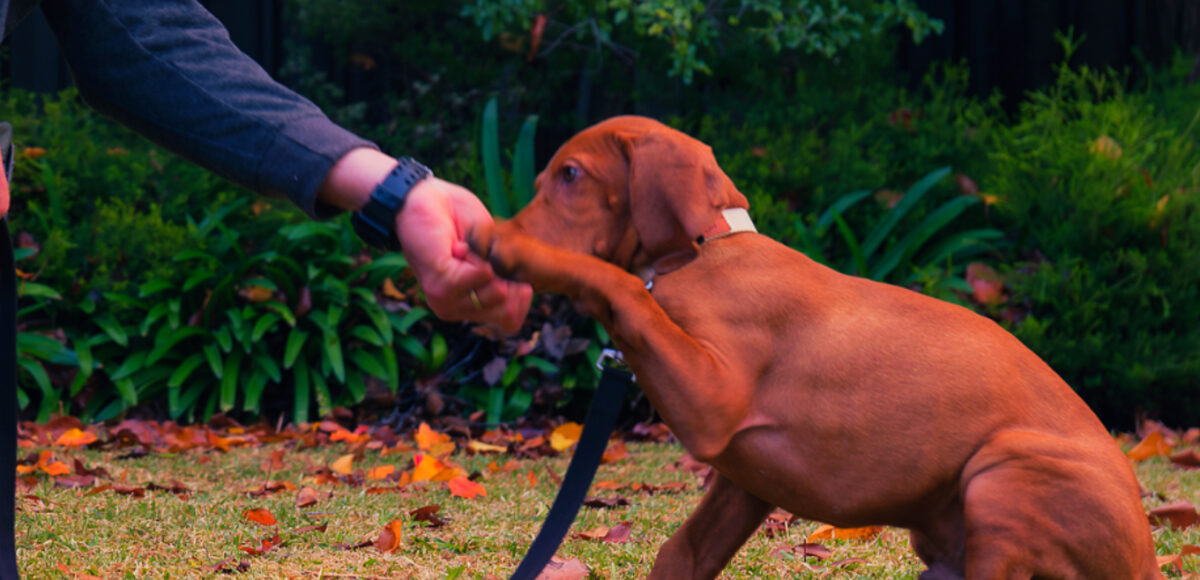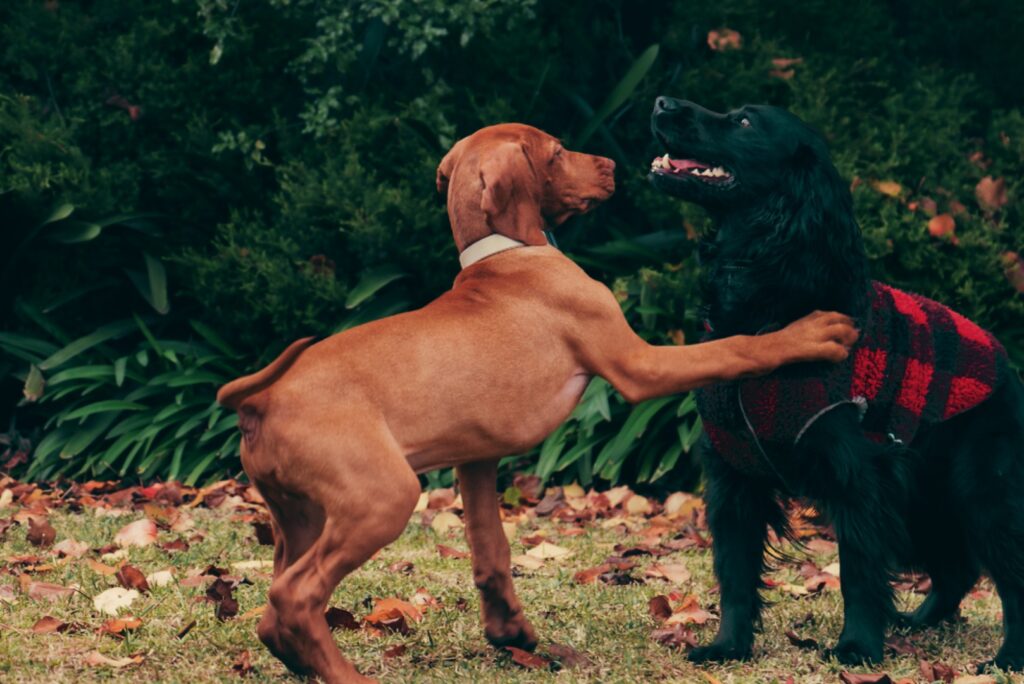
The Essential Puppy Buyer’s Guide
Bringing a puppy into your life is exciting, heart-warming, and let’s be honest – a little overwhelming. This Puppy Buyer’s Guide is your comprehensive roadmap to choosing, preparing for, and raising your puppy the right way.
Before You Bring Your Puppy Home
Understand Puppy Development
Puppies experience key developmental stages: neonatal (0–2 weeks), transitional (2–4 weeks), socialisation (4–12 weeks), and juvenile (3–6 months). These phases shape how they see the world and respond to it. Understanding their emotional and behavioural needs during each stage will help you raise a confident, well-adjusted dog. Having a clear understanding of what is required and how your dog responds to the i’s experiences and the environment is essential if you want to have a happy and well balanced dog. Direct K9 Services have developed a comprehensive puppy programme called ‘The Puppy Pathway’ which gives in depth information and guidance on how to navigate the critical periods of development.
Puppy-Proof Your Home
Puppies explore with their mouths, so safeguard your space like you would for a toddler. Remove hazards like electrical cords, shoes, cleaning products, and poisonous plants. Set up a calm area with a crate or pen for rest and downtime.
Essential Supplies Checklist
- Non-slip food and water bowls
- High-quality puppy food (age and breed-appropriate)
- Collar, lead, and ID tag
- Crate or indoor pen
- Comfortable bed
- Puppy-safe chew toys
- Puppy pads (optional) and poop bags
- Puppy shampoo and grooming brush
- First aid kit and health records folder
Choose a Local Vet
Have a vet lined up before day one. Schedule your puppy’s initial health check, vaccinations, and discuss parasite prevention and desexing. A good vet is a lifelong partner in your dog’s wellbeing.
Choosing the Right Puppy
Do you live in a unit or on acreage? Work full-time or from home? Enjoy long hikes or prefer a more relaxed pace? Your daily routine, energy level, and household dynamics should guide your choice of breed or mix.
Research Breeds (or Consider Adoption)
Every breed—and every dog—has unique needs. Consider temperament, size, grooming, exercise requirements, and common health concerns. Rescue organisations and shelters often have puppies and young dogs looking for homes, many of them fostered in loving environments where behaviour can already be assessed. If you are looking to adopt, the RSPCA’s national adoption website is a good place to start.
If Buying from a Breeder:
- Visit in person—inspect cleanliness, health, and socialisation
- Meet the puppy’s mum (and ideally the dad)
- Ask for health test results (hip scores, DNA tests)
- Ensure pups are raised indoors with family interactions
- Breeder should ask you questions too
🚫 Red flags: unwillingness to meet, pressure to pay deposits sight unseen, or advertising through classifieds or pet shops—these often indicate puppy farms.

Pre-Arrival Training and Education
Don’t wait until your pup arrives—start training yourself first. Our Puppy Pathway programme gives you the tools to confidently handle those crucial first weeks. Learn:
- The basics of canine communication
- How dogs learn
- Socialisation
- Toilet training
- Basic obedience
- Problem solving skills
Family Preparation
Get everyone on the same page:
- Agree on household rules (furniture access, feeding times, training words)
- Set roles (who walks, feeds, trains, and lets the pup out)
- Use consistent cues—dogs thrive on clarity
Prepare for Socialisation
Early exposure to sounds, sights, people, and animals is essential in preventing behavioural problems later. Make a socialisation checklist for your puppy’s first 12 weeks. Socialisation and environmental conditioning are subjects that we cover in depth in the Puppy Pathway puppy training and education course. In short, it is the managed positive exposure to all living and non-living things that the puppy is likely to encounter during its life. You need enough exposure to a variety of experiences so that the puppy can generalise between similar safe and positive situations. The socialisation window starts closing around 12 weeks and by 16 weeks the puppy has gathered the bulk of the information it will use for the rest of its life. Because of this, socialisation and environmental conditioning are priorities from day one.

The First Days at Home
Have a Plan
It is essential that you know what you want to do and how you will do it prior to the puppy arriving. This includes educating yourself with enough knowledge on how to deal with unexpected outcomes, challenging behaviours and adapting your training to suit the puppy. Remember, the puppy will start learning immediately so it is much easier and more successful if you are prepared.
Settling In
Keep the first 48 hours calm. Introduce your puppy to their new space gradually. Let them sniff and explore on their terms. Avoid overwhelming them with new people, noisy toys, or long car trips.
Create a Routine
Dogs are creatures of habit. A clear daily routine gives them confidence and security. Aim for:
- Meals at the same times each day
- Toilet breaks every 1–2 hours (initially)
- Nap times in a quiet space
- Short play sessions and gentle training
Toilet Training Tips
- Take them out after waking, eating, and playing
- Use a cue like “toilet time” and praise with treats
- Limit free roaming indoors until they’re consistent
- Clean up with enzyme spray to remove lingering smells
Health and Wellbeing
Feeding Your Puppy
Research based on your breed and what is available to you locally. Avoid switching brands or style of food abruptly—do so gradually over 5–7 days if needed. Puppies need multiple small meals per day (typically 3–4 until 6 months).
Vaccinations and Parasite Control
Your vet will create a vaccine schedule to protect against parvovirus, distemper, hepatitis, and more. Regular worming, flea and tick prevention are also essential—especially in warmer climates.
Grooming and Handling
Brush daily for long-haired breeds or weekly for short coats. Gently touch paws, ears, and mouth often to prepare for vet visits and grooming. Make grooming part of playtime.
Legal and Ethical Responsibilities
Registration and Microchipping
In most Australian states, puppies must be microchipped and registered with your local council. Keep contact details current and make sure your dog always wears ID.
Desexing
Consult your vet with regards to desexing.
Lifelong Commitment
Dogs live 10–16 years depending on breed. They need love, structure, companionship, vet care, exercise, and stimulation. Be ready to invest time, money, and emotion into a truly rewarding partnership.
Support and Ongoing Learning
Raising a puppy doesn’t stop at 12 weeks. Adolescence (6–18 months) brings its own challenges. Keep training, socialising, and exposing your dog to positive experiences. Invest in group classes or private sessions when needed.
At Direct K9, we can support you in Adelaide and Melbourne with behavioural challenges and if you subscribe to our newsletter you can also keep up to date with the latest information about dog training trends. Your journey has only just begun.
Final Word
A well-raised puppy becomes a joyful companion, a loyal friend, and an important part of your family. With the right preparation, knowledge, and a little patience, you’re setting the stage for a lifetime of love.
Let this guide be your trusted foundation for raising a happy, healthy dog.



